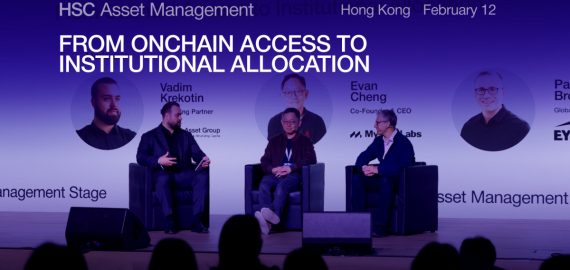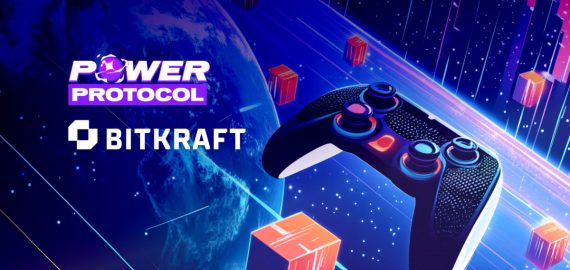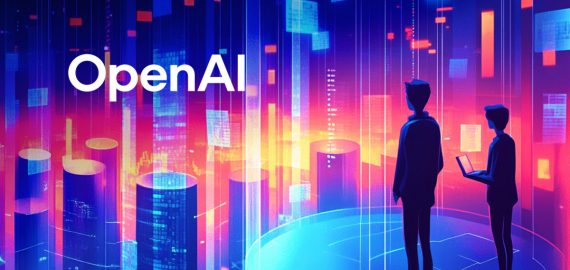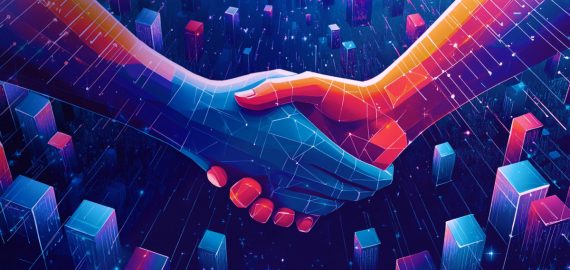How AI Tokens Are Shaping the Future of Decentralized Intelligence


In Brief
AI and cryptocurrency are revolutionizing finance, forming AI tokens. These digital assets improve blockchain systems, gaining traction among investors, developers, and institutions.

Artificial intelligence and cryptocurrency are two of the most revolutionary forces in finance today. Their convergence has given rise to a new frontier: AI tokens. These digital assets leverage machine learning to improve blockchain systems, creating more efficient, secure, and autonomous platforms. As innovation accelerates, the intersection of AI and crypto is gaining significant traction among investors, developers, and institutions alike.
What Are AI Tokens?
AI tokens are cryptocurrencies designed to support blockchain applications powered by artificial intelligence. Unlike traditional tokens such as Bitcoin, which serve broader purposes without a direct link to AI, these tokens specifically facilitate:
- Transactions within AI-powered platforms;
- Governance participation for AI protocols;
- Incentivization systems based on user engagement and machine learning tasks.
These tokens enable decentralized systems to run smarter, more adaptive services. They also empower communities to influence how AI evolves within the ecosystem.
The Regulatory Climate Around AI Tokens
As AI tokens grow in prominence, regulators are beginning to grapple with their unique risks and opportunities. Industry commentators warn that current oversight lags behind the pace of innovation—particularly given that AI token projects can launch faster than regulators can vet them.
Experts from LBank have cautioned that the “speed of AI-driven creation” may outpace supervision, leading to a surge of low-quality or fraudulent tokens. Such a rapid surge “may exceed the speed of supervision,” raising alarms about trust and security. Compounding this, greater accessibility demands stronger vetting: developers and exchanges must implement “filters, vetting, and AI-based security audits” to protect users and maintain integrity.
Meanwhile, thought leaders like Sam Altman have called for the establishment of “AI privilege,” likening user interaction with AI to that with lawyers or doctors. This concept raises important questions about compliance, transparency, and data privacy—particularly in AI tokens where on-chain data may intersect with personal or proprietary information.
Notable Players: INJ, TAO, and RUVI
One of the most prominent AI tokens is Injective (INJ), a decentralized exchange that uses AI for trade execution, strategy testing, and predictive analytics. INJ saw its market cap surge past $1.6 billion in 2024, and again in July 2025, despite significant volatility. This reflects both the promise and risk of AI-powered assets.
Another headline-grabber is Bittensor (TAO), currently valued above $3 billion. Its mission, as described by its creators, is to direct the power of digital markets toward AI ownership that’s “bottom-up” rather than “top-down.” This vision of decentralized machine intelligence has attracted institutional interest, with firms like TAO Synergies investing millions into the network.
Meanwhile, Ruvi AI (RUVI) is turning heads in its presale phase, raising over $2.5 million. Analysts from AI Invest describe it as a “formidable entrant,” noting its potential to challenge established tokens like Binance Coin (BNB). A third-party audit confirmed its smart contracts are free from vulnerabilities, an essential feature in today’s risk-averse investment landscape.
Ozak AI and Real-Time Utility
Ozak AI is another emerging name, blending real-time data delivery with blockchain-backed contracts. Having raised $1.41 million in presales, it is being praised for offering “zero single points of failure” and “secure, scalable infrastructure,” according to CoinCentral. These traits appeal to both retail investors and professional traders.
The Bigger Picture: Blockchain as AI’s Infrastructure Layer
AI tokens don’t just represent financial assets; they symbolize a new operating system for organizing digital economies. Today’s AI landscape is heavily centralized, with opaque data pipelines and model training dominated by a few tech giants. Blockchain introduces a radically different approach through:
- Verifiable ownership;
- Transparent auditing;
- Incentive alignment via tokens.
This structure could solve some of AI’s most pressing challenges, particularly in ensuring data integrity and fair compensation.
Real-World Use Cases
Four key examples illustrate how AI and blockchain can co-evolve:
- Decentralized AI Training Marketplaces: These platforms allow anyone to contribute datasets or computing power in return for tokens. They democratize AI development and diversify its contributors.
- AI-Generated NFTs and Provenance: Artists can use AI to create digital works, then mint them as NFTs. Blockchain tracks ownership and authenticity, enabling a transparent, creator-friendly economy.
- Autonomous Economic Agents: AI-powered agents can use smart contracts to pay for services or buy data autonomously, functioning without intermediaries in decentralized economies.
- On-Chain Data Provenance for AI: By anchoring data on-chain, developers can ensure models are built on legitimate, auditable sources. This bolsters trust and regulatory compliance.
Market Trends and Challenges
AI tokens are on the rise, with some platforms listing over 200 variations. Besides TAO, other high-cap tokens include NEAR Protocol, Internet Computer (ICP), Render (RENDER), and Artificial Superintelligence Alliance (FET). Each boasts valuations exceeding $1 billion.
However, the sector is not without volatility. In July 2025, the total AI token market cap dipped nearly 5% to $4.5 billion, only to rebound days later following announcements by Google and Meta of major investments into AI infrastructure, peaking as high as $18.16B as of August 3.
Despite optimism, concerns of overvaluation persist. Armen Panossian of Oaktree Capital Management likened the AI investment boom to past bubbles, warning that “excessive capital is flowing into AI data centers without sufficient user demand.” Historical parallels to the 1990s fiber optic bust serve as a cautionary tale.
Future Developments
Experts anticipate even more advanced functionalities for AI tokens, including:
- Zero-knowledge proofs for private AI transactions;
- Quantum-resistant algorithms;
- Real-time, cross-chain communication between AI platforms.
These innovations could make AI systems more private, secure, and interoperable.
Promise and Prudence
AI tokens embody the fusion of two transformative technologies. They bring enhanced automation, improved efficiency, and stronger user agency to decentralized networks. As blockchain becomes AI’s infrastructure layer, the potential for decentralized innovation grows exponentially.
But with great promise comes inherent risk. Investors should keep in mind the sector’s volatility, the ongoing experimentation in token models, and the potential for regulatory scrutiny. Nonetheless, for those willing to navigate the complexity, AI tokens represent one of the most exciting developments in digital finance today.
As machine learning becomes more deeply embedded into crypto, and vice versa, we’re not just witnessing a trend. We’re watching the architecture of tomorrow’s internet—and economy—being built in real time.
Disclaimer
In line with the Trust Project guidelines, please note that the information provided on this page is not intended to be and should not be interpreted as legal, tax, investment, financial, or any other form of advice. It is important to only invest what you can afford to lose and to seek independent financial advice if you have any doubts. For further information, we suggest referring to the terms and conditions as well as the help and support pages provided by the issuer or advertiser. MetaversePost is committed to accurate, unbiased reporting, but market conditions are subject to change without notice.
About The Author
Victoria is a writer on a variety of technology topics including Web3.0, AI and cryptocurrencies. Her extensive experience allows her to write insightful articles for the wider audience.
More articles

Victoria is a writer on a variety of technology topics including Web3.0, AI and cryptocurrencies. Her extensive experience allows her to write insightful articles for the wider audience.


















































